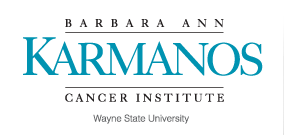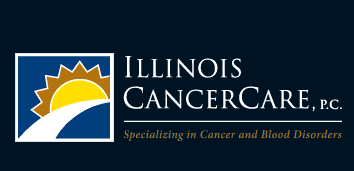Eribulin Mesylate in Treating Patients With Locally Advanced or Metastatic Cancer of the Urothelium and Kidney Dysfunction
| Status: | Active, not recruiting |
|---|---|
| Conditions: | Cancer, Cancer, Renal Impairment / Chronic Kidney Disease, Bladder Cancer |
| Therapuetic Areas: | Nephrology / Urology, Oncology |
| Healthy: | No |
| Age Range: | 18 - Any |
| Updated: | 2/8/2019 |
| Start Date: | October 23, 2006 |
A Phase I/II Study of E7389 Halichondrin B Analog (NSC # 707389) in Metastatic Urothelial Tract Cancer and Renal Insufficiency
This phase I/II trial studies the side effects and best dose of eribulin mesylate and to see
how well it works in treating patients with cancer of the urothelium that has spread to
nearby tissue or to other places in the body and kidney dysfunction. Drugs used in
chemotherapy, such as eribulin mesylate, work in different ways to stop the growth of tumor
cells, either by killing the cells, by stopping them from dividing, or by stopping them from
spreading. Chemotherapy drugs may have different effects in patients who have changes in
their kidney function.
how well it works in treating patients with cancer of the urothelium that has spread to
nearby tissue or to other places in the body and kidney dysfunction. Drugs used in
chemotherapy, such as eribulin mesylate, work in different ways to stop the growth of tumor
cells, either by killing the cells, by stopping them from dividing, or by stopping them from
spreading. Chemotherapy drugs may have different effects in patients who have changes in
their kidney function.
PRIMARY OBJECTIVES:
I. To establish whether E7389 (eribulin mesylate) can be given safely to patients with
moderate and severe renal dysfunction at 1.4 mg/m^2/week (the maximum tolerated dose [MTD]
previously defined for patients with normal renal function) on days 1 and 8 of a 21-day
cycle. (Phase I) II. To characterize the pharmacokinetic (PK) profile of E7389 in patients
with moderate and severe renal dysfunction. (Phase I) III. To determine the response rate of
patients with advanced urothelial carcinomas to E7389 in the first-line setting. (Phase II)
IV. To determine the 6-month, progression-free survival and overall survival of patients with
advanced urothelial carcinomas treated with E7389. (Phase II) V. To document the toxicity
associated with the administration of E7389 to patients with advanced urothelial carcinoma
patients and varying degrees of renal dysfunction. (Phase II) VI. To determine the response
rate of patients with advanced urothelial carcinomas to E7389 in the setting of progression
after prior platinum-based chemotherapy for advanced or recurrent disease, in two cohorts:
tubulin-inhibitor treated or tubulin-inhibitor naive. (tubulin inhibitors in common use for
urothelial cancer include paclitaxel, docetaxel and vinblastine). (Phase II) VII. To
determine the 6-month progression-free survival and overall survival of patients with
advanced urothelial carcinomas treated with E7389 after platinum-based therapy for recurrent
or advanced disease. (Phase II) VIII. To document the toxicity associated with the
administration of E7389 to patients with advanced urothelial carcinoma patients in the second
line and later setting. (Phase II) IX. To compare men and women with advanced bladder cancer
treated with E7389 with respect to toxicity of E7389 as classified by Common Terminology
Criteria for Adverse Events (CTCAE) version (v)4 for (i) all hematologic toxicities, (ii) all
non- hematologic toxicities, and (iii) the most frequently observed toxicities (neutropenia,
anemia, leucopenia, infection). (Enrollment to additional females) X. To compare men and
women with advanced bladder cancer treated with E7389 with respect to response to E7389 as
evidenced by (i) disease control rate (DCR) defined as stable disease (SD)+partial response
(PR)+complete response (CR) at 12 weeks, (ii) progression-free survival (PFS), and (iii)
overall survival (OS). (Enrollment to additional females) XI. To compare men and women with
advanced bladder cancer treated with E7389 with respect to pharmacokinetics of E7389.
(Enrollment to additional females) XII. To compare men and women with advanced bladder cancer
treated with E7389 with respect to tumoral expression of genes involved in the mechanism of
action of E7389, including tubulin isotypes, microtubule-associated protein 4 (MAP4), and
stathmin. (Enrollment to additional females)
OUTLINE: This is a phase I, dose-escalation study followed by a phase II study.
Patients receive eribulin mesylate intravenously (IV) over 1-2 minutes on days 1 and 8.
Courses repeat every 21 days in the absence of disease progression or unacceptable toxicity.
After completion of study treatment, patients are followed up monthly for 12 months and then
every 3 months for up to 24 months.
I. To establish whether E7389 (eribulin mesylate) can be given safely to patients with
moderate and severe renal dysfunction at 1.4 mg/m^2/week (the maximum tolerated dose [MTD]
previously defined for patients with normal renal function) on days 1 and 8 of a 21-day
cycle. (Phase I) II. To characterize the pharmacokinetic (PK) profile of E7389 in patients
with moderate and severe renal dysfunction. (Phase I) III. To determine the response rate of
patients with advanced urothelial carcinomas to E7389 in the first-line setting. (Phase II)
IV. To determine the 6-month, progression-free survival and overall survival of patients with
advanced urothelial carcinomas treated with E7389. (Phase II) V. To document the toxicity
associated with the administration of E7389 to patients with advanced urothelial carcinoma
patients and varying degrees of renal dysfunction. (Phase II) VI. To determine the response
rate of patients with advanced urothelial carcinomas to E7389 in the setting of progression
after prior platinum-based chemotherapy for advanced or recurrent disease, in two cohorts:
tubulin-inhibitor treated or tubulin-inhibitor naive. (tubulin inhibitors in common use for
urothelial cancer include paclitaxel, docetaxel and vinblastine). (Phase II) VII. To
determine the 6-month progression-free survival and overall survival of patients with
advanced urothelial carcinomas treated with E7389 after platinum-based therapy for recurrent
or advanced disease. (Phase II) VIII. To document the toxicity associated with the
administration of E7389 to patients with advanced urothelial carcinoma patients in the second
line and later setting. (Phase II) IX. To compare men and women with advanced bladder cancer
treated with E7389 with respect to toxicity of E7389 as classified by Common Terminology
Criteria for Adverse Events (CTCAE) version (v)4 for (i) all hematologic toxicities, (ii) all
non- hematologic toxicities, and (iii) the most frequently observed toxicities (neutropenia,
anemia, leucopenia, infection). (Enrollment to additional females) X. To compare men and
women with advanced bladder cancer treated with E7389 with respect to response to E7389 as
evidenced by (i) disease control rate (DCR) defined as stable disease (SD)+partial response
(PR)+complete response (CR) at 12 weeks, (ii) progression-free survival (PFS), and (iii)
overall survival (OS). (Enrollment to additional females) XI. To compare men and women with
advanced bladder cancer treated with E7389 with respect to pharmacokinetics of E7389.
(Enrollment to additional females) XII. To compare men and women with advanced bladder cancer
treated with E7389 with respect to tumoral expression of genes involved in the mechanism of
action of E7389, including tubulin isotypes, microtubule-associated protein 4 (MAP4), and
stathmin. (Enrollment to additional females)
OUTLINE: This is a phase I, dose-escalation study followed by a phase II study.
Patients receive eribulin mesylate intravenously (IV) over 1-2 minutes on days 1 and 8.
Courses repeat every 21 days in the absence of disease progression or unacceptable toxicity.
After completion of study treatment, patients are followed up monthly for 12 months and then
every 3 months for up to 24 months.
Inclusion Criteria:
- Patients must have locally advanced or metastatic urothelial cancer that is not
amenable to surgical treatment
- Patients must have histologically or cytologically confirmed urothelial tract
carcinoma
- Patients must have measurable disease, defined as at least one lesion that can be
accurately measured in at least one dimension (longest diameter to be recorded) as >=
20 mm with conventional techniques or as >= 10 mm with spiral computed tomography (CT)
scan
- All patients may have received up to two prior lines of chemotherapy for
recurrent/advanced disease
- Patients must have received at least one platinum-based chemotherapy for
recurrent/advanced disease; recurrent disease is defined as having recurred after
definitive therapy and advanced disease is defined as T4 and/or N2 and/or M1; in
addition, for completion of Cohort #2, patients must also have received a tubulin
inhibitor as part of their therapy for urothelial cancer; for purposes of this
evaluation, treatment with chemotherapy regimens where carboplatin or similar is
substituted for cisplatin or where a taxane is added or removed will be considered the
same regimen; tubulin inhibitors in common use include paclitaxel, docetaxel, and
vinblastine; the exception to this requirement applies to women
- Women with and without prior therapy are also eligible; priority will be given to
those who consent to participating in the pharmacokinetic studies
- Life expectancy of greater than 6 months
- Eastern Cooperative Oncology Group (ECOG) performance status 0-2 and Karnofsky >= 60%
- Absolute neutrophil count >= 1,000/mcL
- Platelets >= 100,000/mcL
- Hemoglobin >= 9 g/dL
- Total bilirubin =< 1.5 institutional upper limit of normal (IULN)
- Aspartate aminotransferase (AST) (serum glutamic oxaloacetic transaminase
[SGOT])/alanine aminotransferase (ALT) (serum glutamate pyruvate transaminase [SGPT])
=< 2.5 X IULN
- Patients must have either (a) normal kidney function (i.e. creatinine =< 1.5 X upper
limit of normal [ULN] OR calculated creatinine clearance >= 60 mL/min by the modified
Cockcroft and Gault Formula OR a creatinine clearance >= 60 mL/min obtained from a
24-hour urine collection) or (b) moderate or severe renal dysfunction (i.e. creatinine
clearance < 60 mL/min and >= 20 mL/min)
- Patients with symptomatic uremia, uncontrolled edema or unstable serum electrolytes
should not enter the trial until such time as they have been stabilized - such
patients should be discussed with the principal investigator
- Eligibility of patients receiving any medications or substances known to affect or
with the potential to affect the activity or pharmacokinetics of E7389 Halichondrin
analog will be determined following review of their case by the principal investigator
- Women and men of child-bearing potential must agree to use adequate contraception
(hormonal or barrier method of birth control; abstinence) prior to study entry and for
the duration of study participation; should a woman become pregnant or suspect she is
pregnant while participating in this study, she should inform her treating physician
immediately
- Patients must have the ability to understand and the willingness to sign a written
informed consent document
Exclusion Criteria:
- Patients may not be receiving any other investigational agents
- Patients with brain metastasis that are unstable (i.e. presenting with neurologic
symptoms that progress or require increasing doses of steroids within a 4-week period)
or are untreated (i.e. not radiated) should be excluded
- Uncontrolled intercurrent illness including, but not limited to, ongoing or active
infection, symptomatic congestive heart failure, unstable angina pectoris, cardiac
arrhythmia, or psychiatric illness/social situations that would limit compliance with
study requirements
- Pregnant women are excluded from this study; breastfeeding should be discontinued if
the mother is treated with E7389
- Human immunodeficiency virus (HIV)-positive patients on combination antiretroviral
therapy are ineligible; HIV-positive patients with cluster of differentiation (CD)4+
=< 500/mm^3 are ineligible; appropriate studies will be undertaken in this group of
patients when indicated
- Prior therapy with E7389 Halichondrin analog (eribulin)
We found this trial at
26
sites
Click here to add this to my saved trials
City of Hope Comprehensive Cancer Center City of Hope is a leading research and treatment...
Click here to add this to my saved trials
1500 East Medical Center Drive
Ann Arbor, Michigan 48109
Ann Arbor, Michigan 48109
800-865-1125

University of Michigan Comprehensive Cancer Center The U-M Comprehensive Cancer Center's mission is the conquest...
Click here to add this to my saved trials
5841 S Maryland Ave
Chicago, Illinois 60637
Chicago, Illinois 60637
1-773-702-6180

University of Chicago Comprehensive Cancer Center The University of Chicago Comprehensive Cancer Center (UCCCC) is...
Click here to add this to my saved trials
Decatur Memorial Hospital An American flag bearing only 48 stars waved above Decatur Memorial Hospital...
Click here to add this to my saved trials
4160 John R St #2122
Detroit, Michigan 48201
Detroit, Michigan 48201
(313) 833-1785

Wayne State University/Karmanos Cancer Institute Karmanos is based in southeast Michigan, in midtown Detroit, and...
Click here to add this to my saved trials
Click here to add this to my saved trials
Click here to add this to my saved trials
Ingalls Memorial Hospital As the area's only independent not-for-profit healthcare system, Ingalls has the ability...
Click here to add this to my saved trials
Click here to add this to my saved trials
Community Howard Regional Health Selecting quality health care services for yourself, a relative or friend...
Click here to add this to my saved trials
Click here to add this to my saved trials
1441 Eastlake Ave
Los Angeles, California 90033
Los Angeles, California 90033
(323) 865-3000

U.S.C./Norris Comprehensive Cancer Center The USC Norris Comprehensive Cancer Center, located in Los Angeles, is...
Click here to add this to my saved trials
Contra Costa Regional Medical Center Contra Costa Health Services is the largest department of County...
Click here to add this to my saved trials
Click here to add this to my saved trials
Loyola University Medical Center Loyola University Health System is committed to excellence in patient care...
Click here to add this to my saved trials
9200 W Wisconsin Ave
Milwaukee, Wisconsin 53226
Milwaukee, Wisconsin 53226
(414) 805-3666

Froedtert and the Medical College of Wisconsin Froedtert Health combines with the Medical College of...
Click here to add this to my saved trials
Illinois CancerCare-Peoria Illinois CancerCare, P.C. is a comprehensive practice treating patients withcancer andblood diseases. Our...
Click here to add this to my saved trials
Click here to add this to my saved trials
Click here to add this to my saved trials
Click here to add this to my saved trials
Click here to add this to my saved trials
615 N Michigan Street
South Bend, Indiana 46601
South Bend, Indiana 46601
(574) 647-7370

Northern Indiana Cancer Research Consortium The Northern Indiana Cancer Research Consortium (NICRC) is comprised of...
Click here to add this to my saved trials
Click here to add this to my saved trials
Click here to add this to my saved trials
801 N Rutledge St
Springfield, Illinois 62702
Springfield, Illinois 62702
(217) 545-8000

Southern Illinois University School of Medicine At SIU School of Medicine, research includes biologically oriented...
Click here to add this to my saved trials






